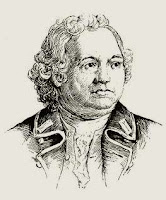What Should We Call the Fighting in Late May 1775?
 In late May 1775, New England and British forces fought over the livestock on Hog Island and Noddle’s Island in Boston harbor. During the shooting a Royal Navy sloop called the Diana ran aground. Provincials attacked from the Chelsea mainland, using their cannon for the first time. The British abandoned the vessel, and the Americans stripped off its artillery and set fire to it. All that is documented.
In late May 1775, New England and British forces fought over the livestock on Hog Island and Noddle’s Island in Boston harbor. During the shooting a Royal Navy sloop called the Diana ran aground. Provincials attacked from the Chelsea mainland, using their cannon for the first time. The British abandoned the vessel, and the Americans stripped off its artillery and set fire to it. All that is documented.
But what do we call that event? East Boston historian Michael A. Laurano raised that question in urging the National Park Service not to adopt the name “Battle of Chelsea Creek.”
To go back to some of the earliest reports, the first volume of Almon’s Remembrancer, a London-based round-up of the previous year’s news, included a letter sent from Newport, Rhode Island, on 1 June 1775 headlined “A circumstantial Account of a Skirmish between the Provincials and the Regulars, at Chelsea, Hogg Island, &c.” A note at the end says, “The above was brought by the Beaver, Capt. Coffin, from Nantucket.”
In the mid-1800s Peter Force transcribed that account (approximately) for his monumental American Archives. He gave the item this title: “Circumstantial Account of the Battle at Chelsea, Hog Island, Etc. in Massachusetts” So the “Skirmish” became a “Battle.”
In turn, Increase N. Tarbox [what a wonderful name] mistranscribed Force’s headline as “‘Circumstantial Account of the Battle of Chelsea, Hog Island,’ etc.” in his 1876 Life of Israel Putnam. Other Putnam biographers also used the phrase “Battle of Chelsea.”
In doing so, those Connecticut authors also followed the lead of Horace Bushnell. On 4 June 1851, he delivered a speech to the Connecticut legislature titled “A Historical Estimate of Connecticut.” No surprise, but Bushnell estimated Connecticut rather highly, and mentioned Gen. Israel Putnam among the reasons why. Bushnell referred to Putnam’s “successful encounter sometimes called the battle of Chelsea.”
The battle looked less impressive to historians writing closer to the action, and not so focused on Putnam. In his History of the Siege of Boston (published in three editions between 1849 and 1903), Richard P. Frothingham never referred to a “battle of Chelsea.” He discussed the fighting in late May 1775 as occurring on Hog Island and Noddle’s Island, and wrote:
This affair was magnified into a battle, and the gallantry of the men engaged in it, and the bravery of General Putnam, elicited general praise. The news of it, arriving in Congress just as it was choosing general officers, influenced the vote of Putnam for major-general, which was unanimous.Another American historian, Henry B. Dawson, titled his chapter about the fight in Battles of the United States (1853) as “Affair on Noddle’s Island.”
In Mellen Chamberlain’s posthumously published A Documentary History of Chelsea (1908), the equivalent chapter is titled “Removal of Livestock from the Islands.” Chamberlain wrote, “A skirmish with no loss of life on the American side, and with small loss on the British, has been magnified as a battle.”
TOMORROW: Who had recently been doing the magnifying?

3 comments:
Call it what you will,but the attack and destruction of a British war vessel at sea by INFANTRY is still quite an occurrance!
The tenacity of Israel Putnam and his militia was indeed remarkable!
I cannot think other than that this "incident" raised the eyebrows of H.M. Navy.
The Diana was afloat, but not really “at sea.” It was trying to maneuver in a backwater behind Noddle’s Island. Which didn’t go so well.
Mr. Bell,
I want to thank you for responding to my inquiry of books about Henry Knox. I was able to find Francis S. Drake's book as a free download and shall be enjoying it soon. I found the download at archive.org There were several other downloads of his books available also. Thanks Again.
Post a Comment